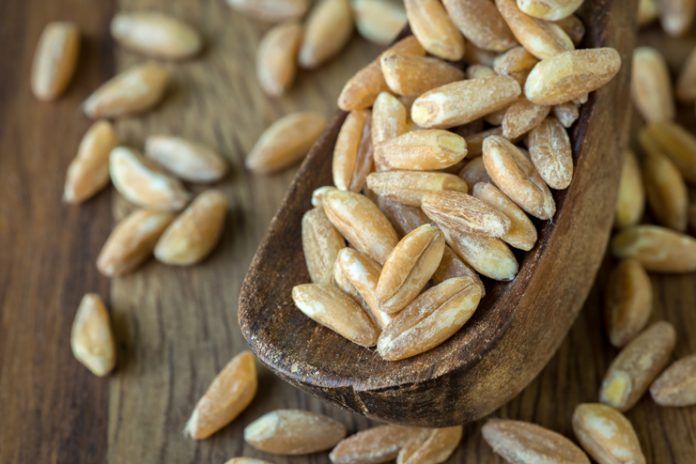Affiliate Disclaimer
Some links in this article are affiliate links. We may earn a small commission if you make a purchase through these links, at no extra cost to you. We only recommend products we find useful to our readersWhat is Farro?
It is believed that the Fertile Crescent region of the Middle East is the origin of the ancient grain known as Farro, which has been around for thousands of years. As a result of its chewy consistency and nutty flavor, Farro is an essential ingredient in Mediterranean and Middle Eastern cuisines.
There are antioxidants, vitamins, minerals, and fiber in it. It also contains protein. In addition to being an excellent substitute for refined grains, it is also simple to incorporate into your diet. You can substitute Farro and barley for one another in most recipes. Farro, a product made from wheat, contains gluten.
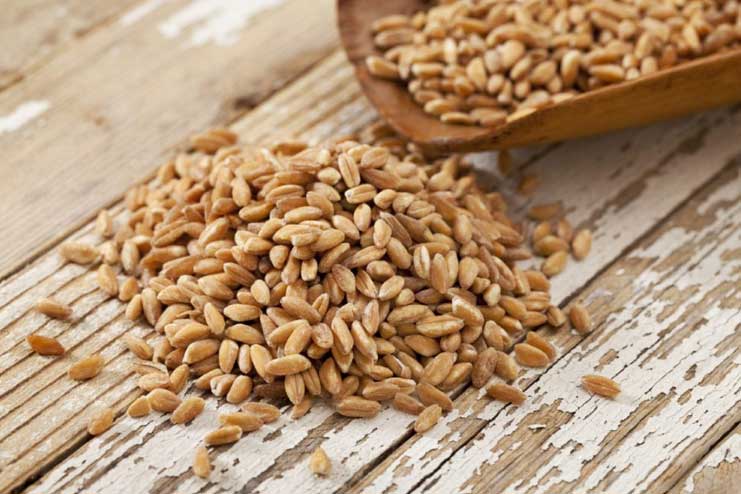
Definition and Brief History:
The term “farro,” frequently referred to as “the mother of all wheat,” describes three different types of ancient wheat: einkorn, emmer, and spelled. Ancient civilizations relied on it as their primary source of nutrition, and due to the numerous health benefits it offers, it has recently been rediscovered as a modern nutritious diet. Throughout history, Farro has been a staple grain for the Romans. It has also been discovered in Egyptian tombs, demonstrating Farro’s long-standing significance in the nutritional landscape.
Types of Farro: Einkorn, Emmer, and Spelt
- Einkorn, also known as Triticum monococcum: Is the earliest kind of wheat farmed. It is renowned for its high levels of protein and minerals. Its slightly sweet flavor makes it easier to digest for individuals who are aware of their sensitivity to wheat.
- Emmer (Triticum dicoccum): More commonly referred to as “true farro,” emmer is the wheat most frequently used in traditional Italian cuisine. It has a rich flavor reminiscent of nuts and a hearty texture.
- Spelt (Triticum spelta): Spelt is a versatile grain with a moderate and slightly sweet flavor. Because of its elasticity and flexibility, it is frequently utilized in the production of baked goods, including bread, pasta, and other baked goods.
Nutritional Profile of Farro

There is a wide range of quality among grains. Because it possesses a solid nutritional profile, Farro is an excellent supplement to a somewhat balanced diet. Specifically, Farro is complete with nutrients, making it a wonderful alternative to the “empty carbohydrates” that are discouraged by many diets. It is an outstanding source of protein derived from plants, which makes it an excellent choice for vegetarians and vegans wanting to incorporate it into their diet.
-
Vitamins and Minerals
Magnesium, zinc, and other B vitamins, including niacin and vitamin B6, are abundant essential elements in Farro. Farro provides approximately 10% of the recommended daily intake (RDA) for iron, serving 2 milligrams of iron per one-third cup of grain. In addition, it presents a trace quantity of both potassium and calcium. Even though a single serving of one-third of a cup doesn’t provide a decent dose of zinc or selenium, people often advertise Farro as a healthy source because it is known to be richer in these minerals than other grains.
-
Fiber Content
One of Farro’s most notable qualities is its high fiber content. Fiber facilitates digestion, contributes to a feeling of fullness, and assists in the regulating blood sugar levels. Consuming only one serving of Farro can meet a considerable portion of the daily fiber requirement.
-
Protein Content
There is a significant amount of plant-based protein in Farro, which is essential for the growth and repair of muscle tissue. Each serving contains 5 grams of fiber. To provide a point of comparison, a serving of white rice has approximately 1.5 grams of protein, while a serving of brown rice contains roughly the same amount. The amount of protein in black rice, an heirloom grain, is comparable to that of Farro.
-
Comparisons to Other Grains
Farro’s minimum processing allows it to retain more nutrients than refined grains like white rice or pasta. Compared to most other grains, it is a more nutritious option for maintaining overall well-being because it contains a higher concentration of fiber and protein.
Because of its high nutritional value and adaptability in the kitchen, Farro is a popular choice among people concerned about their health and want to incorporate more nutrient-dense whole grains into their diet.
Health Benefits of Farro
If you’re uncertain about why Farro is a good choice, take a moment to explore its health benefits. Farro is incredibly beneficial for the body, helping you feel full while providing a range of health advantages.
Some of the best Farro benefits include:
1. Enriched with Fiber
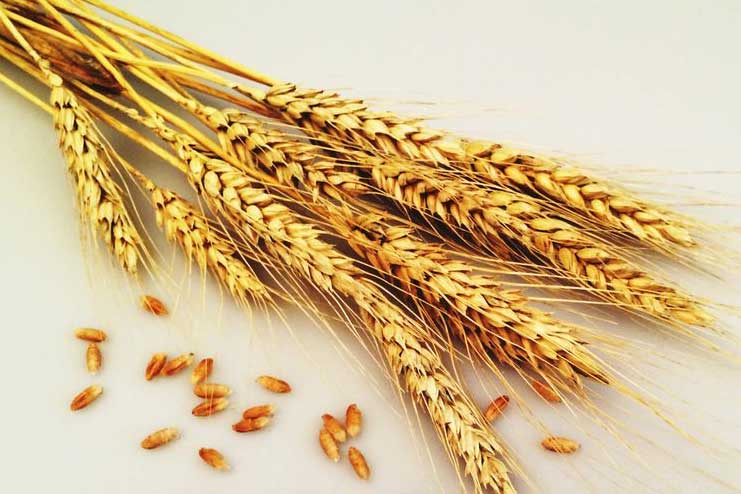
The first and possibly the most important nutritional benefit of Farro is its high fiber content. A high-fiber diet can help you lose weight, control your cholesterol levels, and ensure better heart health.
One cup of uncooked Farro contains 12 grams of fiber, which is one-third of our daily fiber requirement.
This super grain balances out the daily fiber intake, which further helps manage and maintain overall health.
2. Balanced Nutritious Grain

Farro is a nutrient-dense grain that offers a balanced array of essential nutrients, making it highly beneficial for overall health. It is rich in protein, healthy fats, magnesium, vitamins, and zinc, which collectively contribute to a significant positive impact on the body.
Additionally, Farro is enriched with Vitamin B3, an essential nutrient that plays a crucial role in the breakdown of food to improve energy levels. This combination of nutrients ensures that incorporating Farro into your diet can enhance your well-being effectively.
3. Better Boost to Heart Health
 Given that Farro is loaded with the necessary fiber, often more than the other grains, it boosts overall heart health.
Given that Farro is loaded with the necessary fiber, often more than the other grains, it boosts overall heart health.
Eating a fiber-rich diet is key to a healthy heart. In addition to fiber, Farro is also enriched with polyphenols, which further help prevent oxidative stress (R) and keep the heart healthy.
Farro is also high in plant-based protein, which is necessary for improved heart health. So, the combination and balance of all these nutrients ensure the best heart health without complaints.
4. Improves Overall Immunity
 Another health benefit of Farro is that it helps improve immunity. While fiber in Farro is often what most people know of, there are other compounds in it, too.
Another health benefit of Farro is that it helps improve immunity. While fiber in Farro is often what most people know of, there are other compounds in it, too.
Eating Farro ensures that your body is enriched with antioxidants, several phenolic compounds, and even resistant starch, which have beneficial impacts on the body in fighting off diseases (R).
Several studies have concluded that people eating more whole grains are projected to have reduced risks of chronic diseases like diabetes and heart issues.
The grain is also enriched with a compound known as cyanogenic glucosides, which can positively impact one’s immunity and help prevent diseases to some extent.
5. Easy to Digest

If you are looking into the Farro health benefits, you will know that this grain is very easy to digest. Its high fiber content ensures better and easier digestion and doesn’t impose risks on health.
It also bulks up the stool. The fiber content (R) also ensures better intestinal peristaltic movement, which has been found to have beneficial effects on the body.
It also promotes better nutrient absorption, which is crucial if you want better results for your bowel movement.
6. Enriched with High Protein
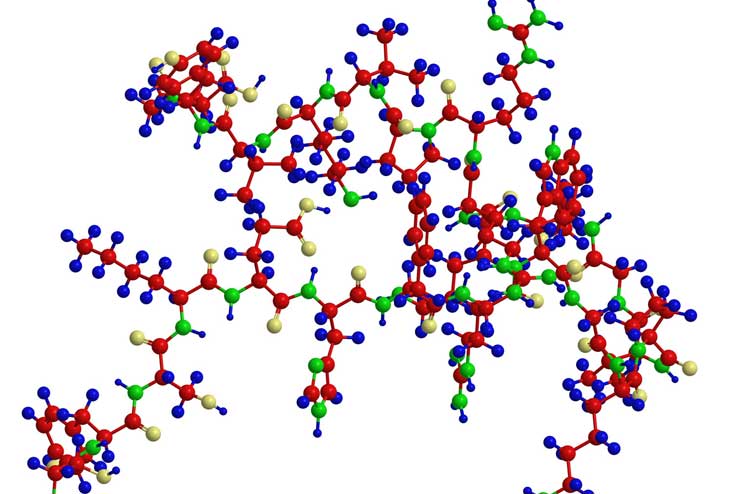
When it comes to the body’s overall well-being, you will be surprised by how important protein is.
For those looking for healthy ways to lose weight, eating a high-protein diet (R) can often help. One of the many health benefits of Farro is its high protein content.
Just a cup of Farro has around 28 gms of protein, which is more than enough if you want your body to be in good health.
Proteins are also necessary as they are the building blocks of the body. Ensuring proper balance in consuming meals helps maintain proper body strength as well.
7. Enriched with Antioxidants
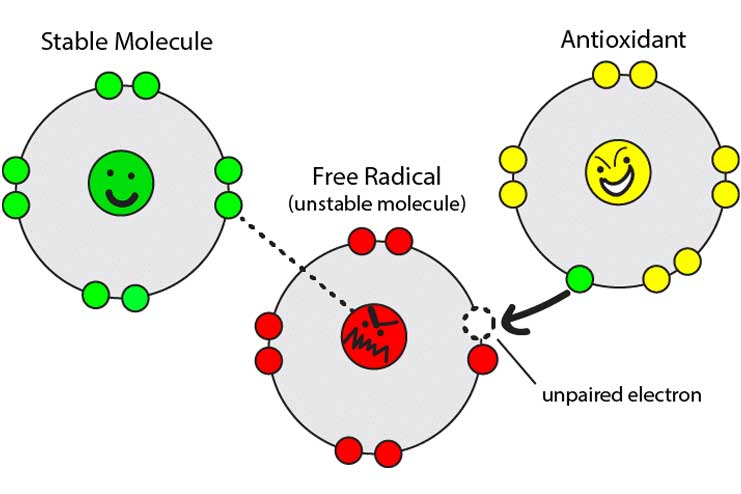
One of the primary nutritional benefits of Farro is the fact that it’s loaded with antioxidants. If you want to enjoy a thrilling boost to your overall well-being, eating farro is the best way to balance that out.
The high antioxidant level in Farro has been found to help with the oxidative stress (R) that many people often suffer from.
The heightened levels of free radicals in the body are often one of the primary factors influencing cancer risks. Every form of Farro has been found to have beneficial impacts on the body because it is enriched with polyphenols, carotenoid, and selenium, which impose beneficial antioxidative impacts on the body.
8. Promotes Better Regulation of Diabetes
 If you are suffering from diabetes, chances are that there are several restrictions that you need to follow through. One of the Farro nutritional benefits is that it helps manage the condition of diabetes for the better.
If you are suffering from diabetes, chances are that there are several restrictions that you need to follow through. One of the Farro nutritional benefits is that it helps manage the condition of diabetes for the better.
Eating a high fiber diet has been associated with better regulation and management of the blood sugar spikes in the body.
In addition, the consumption of Farro is also associated with better weight management, which is another marker for the management of diabetes.
Given that farro is a whole grain, it improves the management of diabetes (R) by managing weight and preventing unnecessary blood sugar spikes (R).
9. Levels up the Requirements of Vitamin B
 Vitamins are a necessity for the body’s overall well being. Farro is loaded with Vitamin B which is one of the primary reasons why this is such a good option to consider.
Vitamins are a necessity for the body’s overall well being. Farro is loaded with Vitamin B which is one of the primary reasons why this is such a good option to consider.
It is especially enriched with Vitamin B3, or niacin, which plays a crucial role in one’s overall metabolic health. It helps convert the food we eat into energy.
In addition, some studies (R) have also found that Vitamin B plays a vital role in brain health and activity. It also improves neurotransmitter levels and the central nervous system.
10. Satiates you Quickly
 If you have a habit of overeating, chances are that eating farro can definitely help manage that issue. It has the property that helps satiate you quickly because of the high amount of fiber and protein in it.
If you have a habit of overeating, chances are that eating farro can definitely help manage that issue. It has the property that helps satiate you quickly because of the high amount of fiber and protein in it.
This is the reason why farro is often a common inclusion in the calorie restrictive meals. If you want to know about the health benefits of farro, one of the most common ones is the fact that it can prevent you from overeating.
This further ensures better well-being and even helps you achieve the weight loss goals (R) that you have planned.
11. Low Calorie grain
 Another benefit of Farro is that it is a low-calorie and low-fat grain. Some varieties of Farro are fat-free, too, which is quite shocking.
Another benefit of Farro is that it is a low-calorie and low-fat grain. Some varieties of Farro are fat-free, too, which is quite shocking.
Even when compared with the other available grains, farro has been found to have a low fat and low calorie nutritional value which is quite useful for the body.
It is believed that a cup of farro contains no fat and 100 calories which is pretty amazing, given how filling it is. The main reason why that is the case is because of the fact that it is a whole grain.
12. Promotes Better Weight Loss
 Even though we have hinted here and there, it is important to know that eating farro benefits weight loss.
Even though we have hinted here and there, it is important to know that eating farro benefits weight loss.
If you have been trying to lose weight but to no avail, try switching up your diet to this whole grain and see if it is effective enough to help you achieve your weight loss goals.
Given that farro is high in fiber and low in calories, it has direct impacts on weight loss by helping you reach satiety easily and preventing the unnecessary overeating that we indulge in occasionally.
13. Helps Reduce the Risk of Cancer
 Cancer does have deadly impacts on our health and can be fatal as well. Studies have found that enhancing high fiber diets with antioxidants can help reduce cancer risks.
Cancer does have deadly impacts on our health and can be fatal as well. Studies have found that enhancing high fiber diets with antioxidants can help reduce cancer risks.
If you have been eating unhealthy, it is time to switch things up.
Farro is loaded with essential antioxidants and polyphenols, which directly impact the body and help reduce cancer risks.
The only thing you need to ensure is that you don’t overdo the consumption because even a very high-fiber diet can cause issues and side effects in your body.
14. Improves Overall Metabolism

If you have a labored metabolism or suffer from other metabolic issues, eating farro can improve your health.
The main reason it is so effective for your metabolism is that it is loaded with essential nutrient balance, like fiber and protein, which is necessary for an individual’s overall well-being.
Since it is a whole grain, it also helps manage the signs of metabolic well-being, which helps keep your body functioning in the best possible way.
15. Effective for Reducing Headaches
 Although there is little evidence to prove that consuming Farro can benefit headaches, eating a healthy portion of Farro daily can reduce the painful bursts of headaches.
Although there is little evidence to prove that consuming Farro can benefit headaches, eating a healthy portion of Farro daily can reduce the painful bursts of headaches.
It has been found to have beneficial impacts in reducing the hypoglycemia induced migraines which are quite painful and discomforting.
More studies do need to be conducted to find better evidence in how it helps around in curing the condition.
How to Include Farro in Your Diet?
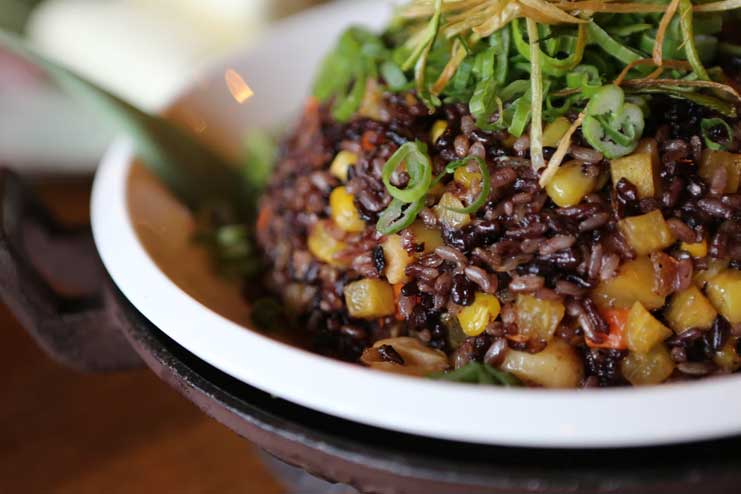
You can boil farro and add it to salads and side dishes, spicing it up with spices and fresh herbs. Add a splash of lemon juice to the mix, and you are good to go with the dish.
Farro can be added to soups and stews. When cooked with spices and herbs, it absorbs the flavors well. Cooked Farro can also be added to breakfast bowls with yogurt, fresh fruits, nuts, and a drizzle of honey for a wholesome and filling breakfast.
Farro is also used in Buddha bowls, pilafs, casseroles, stuffed vegetables, and stir-fries.
In conclusion, Farro is a nutrient-dense ancient grain that offers a wealth of health benefits and culinary versatility. Rich in fiber, protein, vitamins, and minerals, Farro can support digestive health, provide sustained energy, and contribute to overall wellness. Whether used as a hearty base for salads, a nutritious addition to soups and stews, or a wholesome breakfast option, Farro’s nutty flavor and chewy texture make it a delightful and beneficial addition to any diet. By incorporating Farro into your meals, you can enjoy its nutritional advantages while savoring its unique taste and versatility in various dishes.
In this Article















